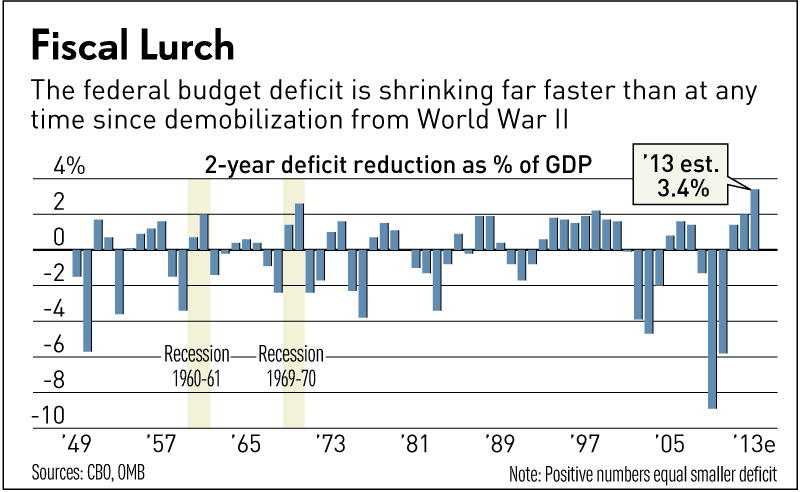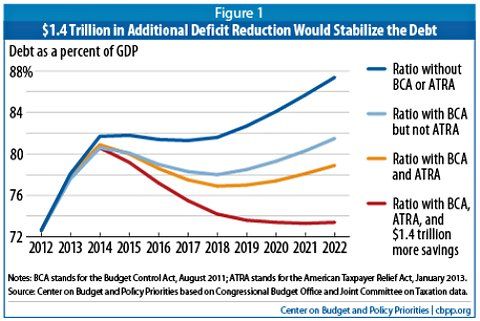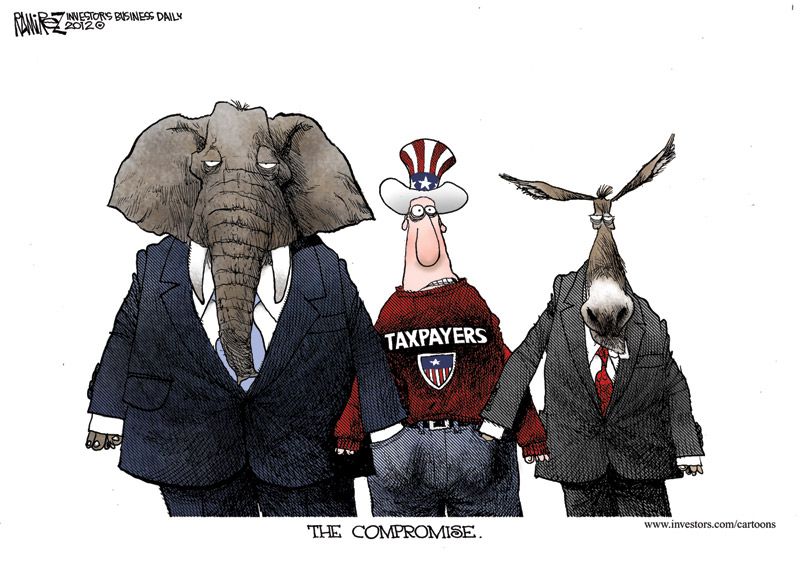The “comedy team” of former Sen. Alan Simpson (R-Wy) and businessman Erskine Bowles trotted out their latest version of their unauthorized report from the “Cat Food Commission” that they co-chaired for President Barack Obama. Not surprisingly, the dynamic duo of austerity and cuts to the social safety net go even further with the 2.0 version of their solution for ending the mythical budget crisis calling for even greater cuts and less revenue all on the backs of those who have the least to contribute:
The corporate austerians released their ‘new’ Bowles-Simpson recommendations today (pdf). They claim that they are building upon their original plan, not replacing it. They framed their recommendations as the last two steps in a four step process. For Social Security followers, Step Three includes the chained CPI. And Step Four includes all of the previous cuts to Social Security which they recommended in their first plan. Raising the retirement age starting in 2022 slowly to 69, cutting benefits through re-indexing and flattening all future benefits for our recipients in 2050. [..]
The corporate austerians go for installing the chained cpi first. Why? It could be that they still think that most Americans do not realize that the chained cpi is a cut which keeps on cutting [..]
The language is a vague euphemism for cuts; code words to their rich buddies that the uploading of wealth will not be threatened with significant new taxes. No pesky new scrap-the-FICA cap income taxes which might be used to pay for under-funded social insurance programs.
Meanwhile, President Obama, seemingly ignoring his two side show buddies, called for tax reforms that would increase revenue and a more balanced approach to the looming sequestration that would impose draconian cuts to non-defense spending programs. Taking lessons from Bill Maher, the Speaker of the House, Rep. John Boehner (R-OH), is having none of that and has proposed “new rule“:
“The sequester will be in effect until there are cuts and reforms that put us on a path to balance the budget in the next 10 years.”
At Maddow Blog, Steve Benen points out that Mr. Boehner may not have thought this “new rule” through and it could pose some problems in his caucus:
One of the details that often goes overlooked is that the House Republican budget plan from the last Congress — the one that included all the spending cuts, entitlement reforms, and tax breaks the GOP are desperate to have — didn’t bring the federal budget into balance until 2040. That’s not a typo — under the House Republican plan, written by Paul Ryan, the United States would run deficits every year for nearly three decades, and then might reach a balanced budget 27 years from now if optimistic projections are met.
And that plan included spending cuts so severe, GOP candidates were afraid to talk about them out loud in public.
This year, however, thanks to a new “rule” embraced by Boehner and his cohorts, the new House Republican plan intends to balance the budget by 2023, instead of 2040. Why does that matter? Because trying to eliminate the entirety of the deficit in one decade instead of three necessarily means ridiculously drastic cuts.
A plan from the House Progressive Caucus that presented the unique idea that creating jobs would bring down the already shrinking deficit. But, as Greg Sargent of the Washington Post‘s “Plum Line“, notes it stands little chance of even being considered in the Republican held House:
Needless to say, this plan – the creation of the Congressional Progressive Caucus – has no chance whatsoever of passing Congress. Which is exactly the point: No plan that prioritizes job creation as the best means of reducing the deficit; no plan that cuts defense while determinedly avoiding any cuts that would hurt the poor and elderly; no plan that includes equivalent concessions by both sides – could ever have a prayer in today’s Washington. It’s yet another indication of how out of whack Washington’s priorities are.
Greg sums up the problem of the GOP’s approach in a nutshell:
So, Boehner says House Republicans are not only willing to let the sequester hit, but that the only acceptable replacement for it will be a plan that wipes away the deficit in 10 years – all without revenues. [..]
There’s simply no chance that House Republicans will produce such a budget by March 1st, which is the deadline for the sequester. If Boehner means any of this, he’s confirming that we’re getting the sequester, and it will remain in effect until it is replaced by a plan that is simply never, ever going to happen. Wiping out the deficit in 10 years with no new revenues would be at least as bad as the Ryan plan – probably worse – yet even that plan was loaded up with unspecified cuts and other big question marks. Republicans are never going to propose specific cuts that balance the budget in 10 years with no new revenues – ever. Boehner has, in effect, just taken ownership of the sequester.
No, Mr. Boehner has not thought this “boner” through.



 Early this morning the
Early this morning the
Recent Comments